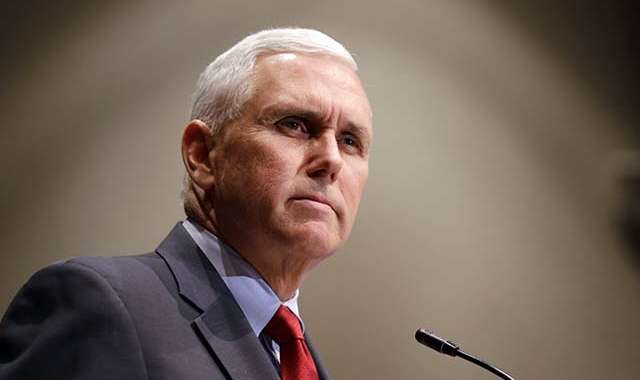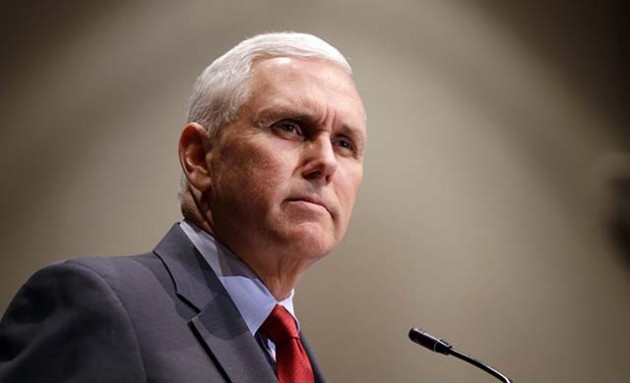Australia warned on playing with fire

Oscar Grenfell Correspondent
Last Thursday, Nick Xenophon, a prominent “third party” senator in the Australian parliament, warned of the catastrophic consequences of a US war with China in an address before the Australian Strategic Policy Institute (ASPI), a think-tank with close ties to Washington.
Speaking to a rarefied audience of diplomats, foreign policy analysts and intelligence personnel, Xenophon dwelt on the reality that has been systematically concealed from the population since the Gillard Labour government gave full backing to the US “pivot to Asia” in 2011 — Australia is on the frontlines of advanced preparations for conflict with Beijing.
The right-wing populist senator, however, who leads the “Nick Xenophon Team”, was not seeking to warn working people of the dangers they confront. Rather, his remarks, published in an abridged form the next day by Fairfax Media, were part of an increasingly concerned debate within the political establishment over the dilemma facing Australian capitalism due to its strategic alliance with the US, and its growing economic relations with China, its largest trading partner.
Xenophon’s speech was published by Fairfax under the headline, “Are we truly ready for the consequences of a war with China?” It was given on the eve of an Australian visit by US Vice President Mike Pence, which was part of a broader campaign throughout the region to drum up support for the Trump administration’s reckless confrontation with North Korea.
Senior figures within the US government have warned that “all options are on the table” in their moves against Pyongyang, including pre-emptive strikes.
The latest US offensive has underscored the imminent danger of a military clash in Asia, whether in the form of a US-provoked conflict on the Korean peninsula, that could kill millions and draw-in other nuclear-armed powers, or in other flashpoints that have been stoked by Washington’s confrontation with China.
Both the Liberal-National government and the Labour Party opposition have backed the Trump administration’s bellicose stance, with Prime Minister Malcolm Turnbull and opposition leader Bill Shorten defining the US-Australia alliance in explicitly militarist terms during Pence’s visit.
Xenophon pointed to the ratcheting-up of tensions under the Trump administration, flowing on from the Obama administration’s massive military build-up in the region directed against China. He implicitly criticised recent remarks by Australia’s foreign minister, Julie Bishop, who called for the US to continue aggressively “calling the shots” in Asia.
The senator cited last year’s report by the RAND Corporation, a think-tank in the US, entitled “War with China: Thinking Through the Unthinkable” He quoted a section of the document which stated that “war between the two countries [the US and China] could be intense, last a year or more, have no winner, and inflict huge losses and costs on both sides”.
In the version published by Fairfax, Xenophon warned: “As both sides’ technologies and doctrine create a preference for striking first, the potential for miscalculation is high.” He said that there was a danger that the US or Chinese military commands would seek to gain the initiative by launching a first strike.
Invoking the tensions that preceded World War One, Xenophon said, “this kind of thinking has uncomfortable parallels with Europe of a century ago, when the belligerents initiated their own military plans to attack before being attacked”.
The senator pointedly noted that many pundits at that time had also declared that a war would be impossible because of the extensive trade links between the rival powers.
Xenophon warned of the consequences that could flow from any Australian “freedom of navigation” operation in the South China Sea.
The US has repeatedly carried out such provocations, in which warships or aircraft are dispatched near or within the 12-nautical-mile limit around Chinese-controlled islets in the South China Sea, where the US has inflamed longstanding territorial disputes.
Under the Obama administration, the US placed intense pressure on the Liberal-National government to carry out a “freedom of navigation operation”, a move that could be considered an act of war by China.
Xenophon raised the spectre of China responding to an Australian action by sinking “an Australian vessel to warn off the United States Navy”.
The senator stated that a US-China war would result in a massive contraction of the Australian economy. He raised the prospect of calls for the interment of the country’s substantial Chinese population.
Xenophon declared that war would “rip … Australia’s social fabric apart”, a reference to the prospect of mass social upheavals. His heavy focus on trade, however, underscored that he is, above all, concerned with the implications of a bellicose posture for the financial interests and corporate profits of the business elite.
As with similar statements by other figures of the Australian political establishment, Xenophon’s speech was most striking for the contradiction between the extent of the dangers it outlined and the bankrupt perspective that it advanced as a response.
The senator called only for a parliamentary vote on action in the South China Sea, or any other military moves against China. He quickly made clear that this would be little more than a rubber-stamp.
He stated: “I believe that parliamentary authorisation is workable and can be formulated in a suitably flexible way that takes a variety of contingencies into account, protects the security of classified information, and copes with the time-sensitive nature of emergency military deployments.”
Xenophon proceeded to contrast “wars of choice” with “wars of necessity”, stating that in the latter instance, where Australian aggression was justified by invocations of “self-defence,” the government should not require any parliamentary go-ahead.
In other words, Xenophon’s proposal is not aimed at preventing military action, but at providing it with a democratic veneer amid mass anti-war sentiment among workers and young people.
As Xenophon and his audience knew, Australia would be automatically involved in any US-led conflict in Asia due to the extensive basing arrangements and military integration with American forces.
The US-operated base at Pine Gap, in central Australia, is only one of the starkest examples. It plays a central role in military spying operations throughout the Middle East, Eurasia and the Western Pacific. Over recent weeks, the base has reportedly focused its attention on North Korea, and would inevitably be involved in the coordination of US strikes against Pyongyang. (See: “Australia’s role in US plans for war on North Korea”)
All the parliamentary parties are implicated in these moves, which take place every day entirely behind the backs of the population.
Xenophon and his rightwing formation are no exception. He has repeatedly joined in campaigns against Chinese investment in Australian infrastructure projects, which have been used to promote anti-Chinese paranoia and xenophobia.
Xenophon has been a vociferous proponent of the spending up to $50 billion on a new fleet of 12 conventional attack submarines in his home state of South Australia. He has explicitly linked the project to preparations for Australian involvement in a war in Asia.
In an October 2015 column, he referenced the tensions with Beijing in the South China Sea, the Korean peninsula and throughout Asia and wrote: “In wartime, simply sending subs to sea causes chaos for our enemies. Not knowing where our subs are means our enemies have to assume they’re everywhere, stretching and weakening the enemy’s forces.” – wsws.










Comments